Conures are a popular species of parrot known for their playful and affectionate personalities. They are also known for their nippy behavior, which can sometimes include nibbling on their owners.
Nibbling is a common behavior in conures and is often harmless, however, it can be confusing for owners who are not sure why their bird is doing it.
The purpose of this blog is to explain why conures nibble on their owners and provide strategies for dealing with this behavior.
The blog will also help to understand their natural instincts and common reasons for nibbling and how to redirect their behavior in a positive way. So, if your conure has a habit of nibbling on you, read this article till the end.
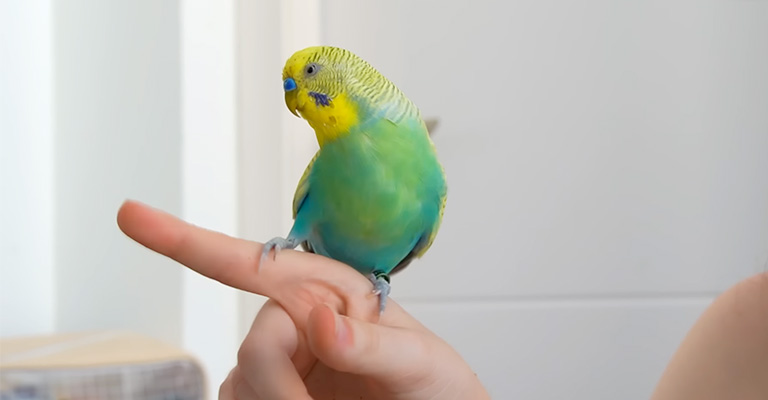
Understanding Conure Behavior
You can’t understand the behavior of your conure just in a day. You need to understand their criteria and basic behavioral facts for that. The following details will help you understand their behavior quickly.
Recognize the Difference between Nipping and Nibbling
The first step in understanding Conure’s behavior is to distinguish between nipping and nibbling. Nipping refers to a more forceful bite or pinch, whereas nibbling is a gentler form of biting.
By understanding this distinction, you can better interpret your Conure’s intentions and respond accordingly.
Acknowledge Conures as Social Animals
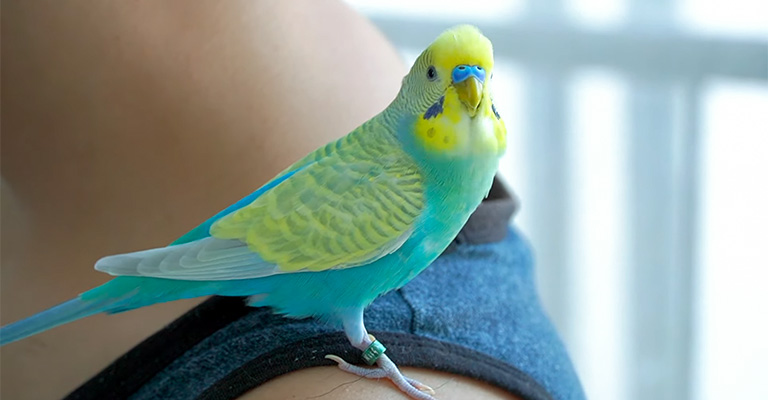
Conures are companion birds and have innate social instincts. They thrive on interaction and enjoy spending time with their owners.
Recognizing their social nature will help you understand why they engage in certain behaviors, such as nibbling or seeking attention.
Understand Nibbling as Communication
Conures may nibble on their owners as a form of communication. It can be a way for them to seek attention, especially if they feel neglected or ignored.
By nibbling, they are trying to express their needs or desires. It’s important to respond positively to this behavior and address their underlying needs.
Recognize Nibbling as Bonding and Affection
Nibbling can also be a way for Conures to bond with their owners and show affection. It’s their way of expressing love and forming a connection.
Understanding this aspect of their behavior allows you to reciprocate their affection and strengthen your bond with them.
Consider Nibbling as an Exploration Behavior
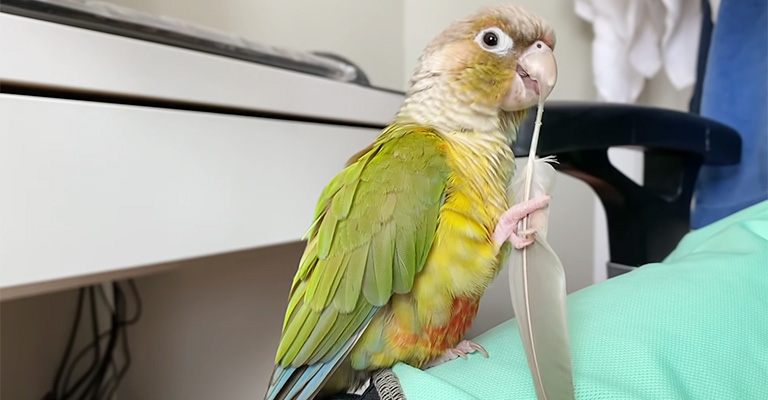
Conures explore their surroundings using their beak. Nibbling is a natural behavior for them to investigate objects and their environment.
By recognizing this, you can provide them with appropriate toys and objects for exploration, redirecting their nibbling behavior toward more suitable options.
Respond Positively and Redirect the Behavior
When your Conure engages in nibbling, it’s important to respond positively and redirect the behavior when necessary.
Instead of reacting negatively or pulling away, calmly guide their beak towards a more appropriate target, such as a toy or perch. Reinforce positive behavior by rewarding them with praise, treats, or attention when they engage with these alternatives.
Provide Enrichment and Interaction
To prevent excessive nibbling and promote a healthy and happy Conure, it’s essential to provide them with sufficient enrichment and interaction.
This includes offering a variety of toys, engaging in playtime, and providing opportunities for socialization. By fulfilling their natural needs, you can reduce unwanted nibbling behaviors.
Seek Professional Advice if Needed
If you’re struggling to understand or manage your Conure’s behavior, don’t hesitate to seek professional advice.
Avian veterinarians or experienced bird trainers can provide valuable guidance tailored to your specific situation. They can help you address any concerns and develop effective training and behavior modification strategies.
Cause of My Conure Nibble on Me
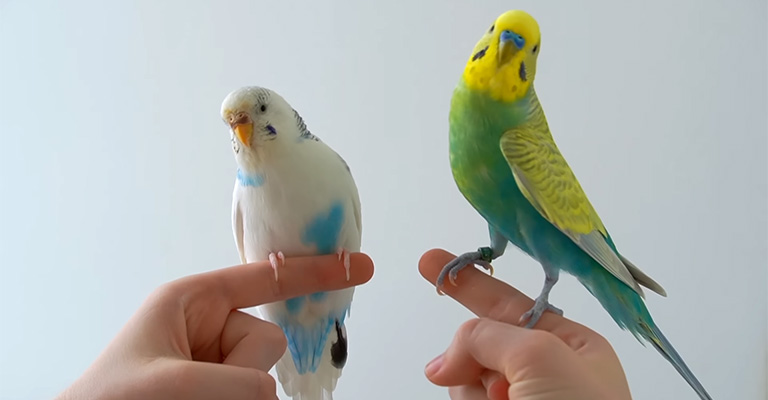
There can be several reasons why your Conure nibbles on you. Here are some common causes:
Attention-Seeking
Conures are social birds and enjoy interacting with their owners. They may nibble on you as a way to get your attention, especially if they feel neglected or want to initiate playtime or interaction.
Bonding and Affection
Nibbling can be a sign of affection and an attempt to bond with you. Conures may nibble gently as a way to show their love and establish a connection with you.
Exploration
Conures explore their environment using their beak, and nibbling is a natural way for them to investigate objects and textures. Your fingers, clothing, or jewelry may simply be intriguing to them, and they nibble to explore and understand their surroundings.
Teething
Like humans, birds go through a teething process where their beaks may feel uncomfortable. Nibbling can alleviate their discomfort during this time. Providing appropriate chew toys can help redirect their nibbling behavior onto suitable objects.
Hormonal Behavior
During certain times, such as breeding seasons or hormonal changes, Conures may exhibit increased nibbling behavior. This behavior can be associated with hormonal activity and a desire to establish territory or courtship behavior.
Lack of Training or Boundaries
If your Conure hasn’t received proper training or boundaries, they may nibble as a way of testing their limits or seeking attention. Consistent training and establishing clear boundaries can help address this behavior.
Fear or Insecurity
Nibbling can also be a response to fear or insecurity. If your Conure feels threatened or uncomfortable in certain situations, they may resort to nibbling as a defensive behavior.
How to Deal With Nibbling?
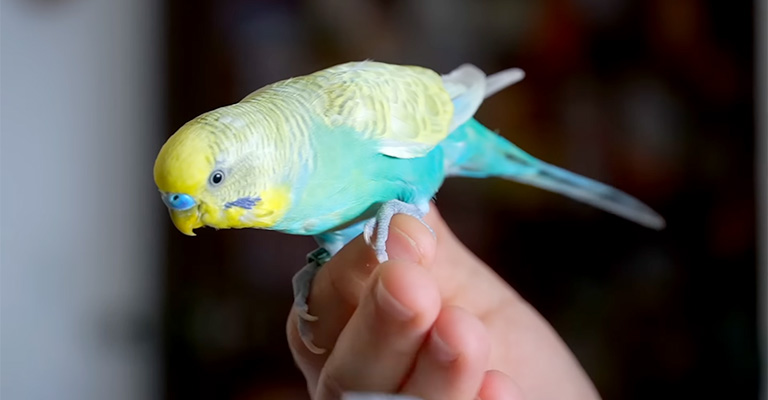
Now the question is how should you deal with your bird when it will nibble. Check out the following details that will help you deal with the situation.
Stay Calm and Avoid Reacting Negatively
When a conure nibbles, it’s important to remain calm and composed. Avoid reacting with fear, anger, or frustration, as this can inadvertently reinforce the behavior or create a negative association with you. Instead, stay patient and composed during the training process.
Positive Reinforcement
Positive reinforcement is a powerful tool when dealing with nibbling behavior. Reward your conure with treats, praise, and positive attention when they engage in desired behaviors such as playing with toys or stepping up on command. This reinforces good behavior and helps them understand what is expected of them.
Provide Appropriate Toys and Activities
Conures are intelligent and active birds that require mental and physical stimulation. Provide them with a variety of toys, including chewable items and puzzle toys, to keep them occupied. This can help redirect their nibbling behavior towards more suitable objects and activities.
Redirect Their Attention
When you notice your conure starting to nibble, redirect their attention to a more appropriate target. Offer them a chew toy or a piece of fruit to chew on instead of your fingers or clothing.
You can also divert their attention by engaging them in a new activity or task to redirect their focus away from nibbling.
Be Consistent and Patient
Consistency is key when dealing with nibbling behavior. Reinforce the desired behaviors consistently and redirect the nibbling behavior every time it occurs.
This helps your conure understand what is acceptable and what is not. Be patient and persistent in your training efforts, as it may take time for the bird to fully grasp the new behaviors.
Avoid Punishment
Punishing your conure for nibbling is not recommended, as it can create fear and anxiety, which may worsen the behavior or harm the bond between you and your bird.
Instead, focus on positive reinforcement and redirection techniques. Rewarding desired behaviors and ignoring or redirecting unwanted behavior will yield better results.
Seek Professional Advice if Needed
If you’re struggling to manage your conure’s nibbling behavior or if it becomes a persistent issue, consider seeking advice from a veterinarian or a professional bird trainer.
They can provide guidance specific to your conure’s needs and help you develop a customized training plan.
FAQs
One way to tell the difference between nibbling and biting too hard is by paying attention to the pressure of the bird’s beak on your skin. Nibbling should be gentle and not cause any pain or discomfort while biting too hard will typically be more forceful and may cause pain or discomfort. Additionally, if your conure latches on and doesn’t let go easily, it’s likely they are biting too hard.
In some cases, nibbling behavior can be a sign of a health problem such as malnutrition or an oral health issue. If your conure’s nibbling behavior seems excessive or unusual, it’s important to consult with a veterinarian to rule out any underlying health issues.
Yes, it is possible to train a conure not to nibble on you. It’s important to be consistent and patient with the training process and to use positive reinforcement techniques to encourage good behavior. Providing appropriate toys and activities can also help to keep your conure mentally and physically stimulated which can reduce the likelihood of nibbling behavior.
Yes, it is safe to give your conure fruits and vegetables to nibble on. These foods are a natural and healthy way to redirect their nibbling behavior. However, make sure to check with your veterinarian to ensure that the food you give them is safe for them and not toxic.
If your conure continues to nibble on you despite your efforts to redirect its behavior, it may be helpful to consult with a professional trainer or a veterinarian. They can provide more guidance and support in dealing with this behavior. Additionally, it’s important to remember that training takes time and patience, so don’t give up if you don’t see immediate results.
Conclusion
Conures are a playful and affectionate species of parrot known for their nippy behavior, including nibbling. Nibbling is not something uncommon in their behavior. But nibbling and nipping are not the same thing.
You can understand their issues regarding nibbling and nipping, once you can be well aware of their behavior. It’s also important to remember that each bird is unique and may have different needs, so it’s essential to consult with a veterinarian or a professional trainer if needed.
Hopefully, you’ve got your answers regarding this issue. Still, if you want to know about anything similar, please inform us about it in the comment section. Thank you for your time.